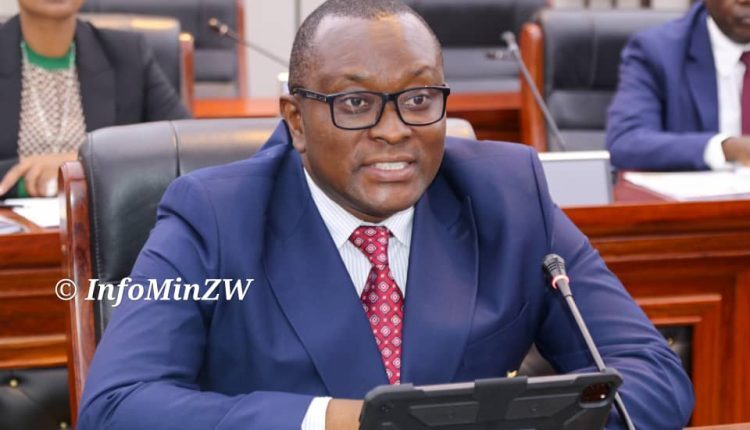Harare: The government is set to align all laws on the protection of children, setting the age of majority in the country at 18 years old, a cabinet minister has said.
Presenting the weekly post cabinet media briefing on Tuesday, Information, Publicity and Broadcasting Services Minister Dr Jenfan Muswere said Cabinet had approved the principles to the amendment of the Criminal Law (Codification Reform) Act.
He said the approval followed a presentation by Justice, Legal and Parliamentary Affairs Minister Ziyambi.
“Infact what the Bill is doing is actually harmonizing our laws with the marriage law saying there cannot be a marriage with someone who is below 18,” he said.
Dr Muswere added that while Section 81 of the Constitution of Zimbabwe defines a child as every boy or girl under the age of 18 years and further provides for freedom and protection of children from all forms of sexual exploitation, Section 61 of the Criminal Law Codification Reform Act, under Part 111 of Chapter V (Sexual Crimes and Crimes Against Morality) defines young person as a “boy or girl under the age of 16 years.”
“The implications of Section 61 of the Criminal Law (Codification Reform) Act is that it creates a category of children (those between 16 and 18 years of age) in relation to sexual offences, who do not enjoy the same protection as afforded to all children as intended by Section 81 of the Constitution of Zimbabwe which defines every boy or girl below the age of 18 as a child,” he said.
He said the Criminal Law Codification and Reform Act will be amended by incorporating the constitutional definitions of a child and provisions on marriage with provisions for compliance with the Constitution made for all sexual offences on sections 70, 76, 83 and 86 of the Act.
“The amendment proposes that provisions be incorporated in the Act which define the close in age gap between minors and/or an adolescent to avoid criminalizing consenting minors or a minor and an adolescent whose age range cannot be considered predatory or exploitative. Consultations conducted recommended 3 years age difference for this purpose. Further proposals include the removal of discretional powers of a social worker recommending the prosecution of one of the minors where the minor’s consent to sexual activity and fall within the recognized close in age gap,” said Dr Muswere.
“The amendment proposes that the discretion should lie with the Prosecutor-General who has the power to decline prosecution in criminal cases. To eliminate predatory and exploitative sexual conduct, the Bill will provide for the protection of children living with disabilities and those with unique communication needs and who rely on a special sign language for communication which is not classified as official sign language. The provisions will include interpretation of such unique sign language that may aid in adducing evidence in court and not limiting sign language to official court sign language only as admissible.”
Responding to questions during the briefing, Ziyambi said the amendment was meant to ensure that the law complied with the Supreme Court judgment which said a child is anybody below the age of 18.
“What we are trying to do is to comply with the constitutional court judgment which said a child is somebody below the age of 18 yet our criminal code has set it at 16 and there are these two years difference where these children were not enjoying the rights which are in the constitution,” he said.
On continued child marriages involving members of faith-based organisations, Ziyambi said compliance was an issue for the law enforcement agency as the Marriages Act outlaws any marriage with a person below the age of 18.


